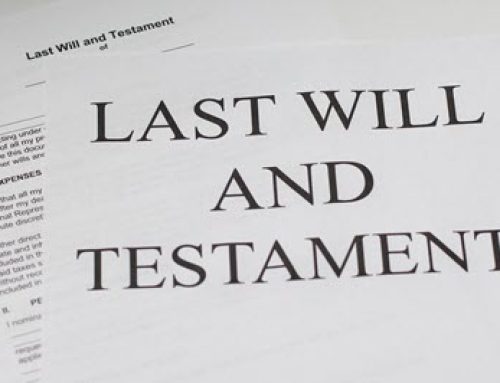Question: I've heard that my spouse and children will inherit my assets if I don't have a Will. If I want my spouse and children to inherit everything, why would I need a Will?
Answer: The idea that your spouse and children will get everything is just a general guideline, it may or may not happen in your particular situation. And, even where the law provides that your spouse and children will inherit your assets, it might not work like you think.
Arizona's laws of intestate succession generally provide that your spouse and/or children will inherit your assets upon your death. If your children are all children of your surviving spouse, then your surviving spouse would get your entire estate. However, if you have children that are not also children of your surviving spouse, one half of your separate property will pass to your surviving spouse and the other half of your separate property plus your entire one half interest in the community property will pass to your children. This could be a big problem for your surviving spouse. In Arizona, the majority of most married couple's assets are owned as community property. Community property is all property acquired during the marriage, except that property that was obtained via gift or inheritance. If you have children that are not children of your surviving spouse, this means that the bulk of your assets would go to your children, not your spouse. This could have serious financial implications for your surviving spouse. Relying on the laws of intestate succession gets even more dangerous if you have step-children. Arizona law does not provide for step-children, meaning your step-children will inherit nothing if you die without a Will.
A Will also serves other functions than just distributing your property to the right people. If you have minor children (under the age of 18), your Will also appoints a guardian for your minor children. A guardian is responsible for raising your minor children. A guardian acts like a parent would, providing education, food, medical care and supervision. It is always a good idea to name a guardian, even though your surviving spouse would likely raise your children if you passed away. In the event both you and your spouse are in an accident, you want to be sure your children have the best possible care. You should consider naming a parent, sibling or other trusted individual that you know will take good care of your children. If you don't have a Will, the court will appoint a guardian for your minor children – without any input from you.
You can also name a conservator in your Will. A conservator is responsible for managing the assets of someone who is unable to manage assets own their own. Children under the age of 18 need a conservator to manage any assets they inherit. If you are responsible for a special-needs individual, they too may need a conservator to manage their assets. A conservator will collect and manage the assets belonging to an individual and then use those assets to pay for the individual's care, education and support. If you have a surviving spouse, he or she would likely fill this role. However, naming a “backup” conservator can ensure that your legacy is properly handled, regardless of the circumstances. You may want to name the same person as guardian and conservator, however this is not required.
Your Will should also name a personal representative. A personal representative, also known as an executor, is responsible for managing your estate after your death. This includes collecting your assets, opening a probate if required, dealing with your creditors, distributing your estate to your beneficiaries, and paying any taxes you might owe. This is the person that is ultimately responsible for your legacy, and making sure your assets go where you want them to go. As such, this should be someone who you completely trust to handle your property according to your wishes. If you don't have a Will appointing a personal representative, the court will appoint one for your estate – again, with zero input from you.
If you have any other questions about Wills, please call Arizona estate planning attorneys Richard Keyt (480-664-7478 or [email protected]) or his son Richard C. Keyt (480-664-7472 or [email protected]).






Leave A Comment